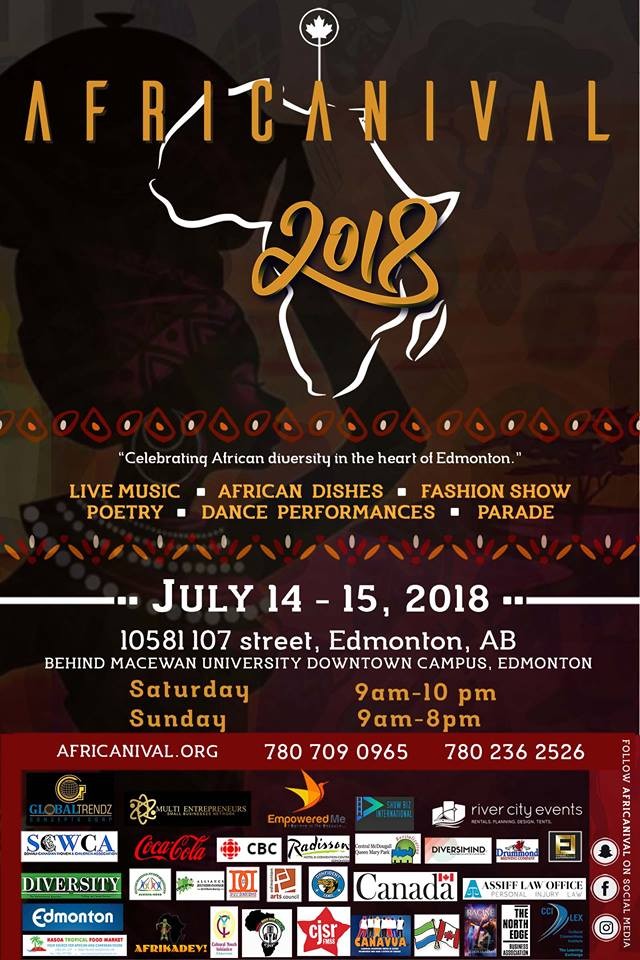
If you called today, June 27, 2018, as Edmonton’s “anti-racism day”, you will not be wrong. The Government of Canada launched its Multiculturalism Funding Program, the Alberta Government released its anti-racism report, and on the same day, Edmonton Police Commission released its report on Street Checks in Edmonton, carried out by Dr. Curt Taylor Griffiths and his team. Dr. Griffiths is a Professor in the School of Criminology at Simon Fraser University.
The Police Commission Report focused on the use of Street Checks, or call it carding, stop and search, or any form of engagement with a Police Officer, where an officer approaches a citizen and ask questions with answers entered into a police database.
The Police Commission Report Page 1 introduces the Executive Summary of the report, “…With respect to policing, it has been argued that, in conducting Street Checks, police officers engage in racial profiling and biased policing…” This is a position that Edmonton Police Chief, Rod Knecht, says does not apply to EPS in a press conference at the EPS Headquarter on June 27, 2018, in Edmonton.
A number that stands out in the report pops out on Page 4 of the Executive Summary, “…The analysis of the 2017 Street Checks record SCR data revealed that only 16.5 percent of the 27,125 SCRs that were approved in 2017 were in compliance with EPS Street Check guidelines”. Chief Knecht said at the press conference that the percentage of SCR that were in compliance were way higher. He said the discrepancy was due to the definition of Street Checks. This provoked a question from Diversity Magazine, “What is the definition of Street Checks?”
The Chief gave a complex definition of Street Checks which confirms something that also caught our attention on Page 10 of the Executive Summary, “…The findings from this study suggest a degree of disconnect between EPS senior management and line-level officers with respect to Street Checks. There was among EPS officers some degree of confusion as to the exact definition of a Street Check and when it was appropriate to conduct these stops. This uncertainty is not unique to the EPS and has occurred in other jurisdictions as well. It is a major contributor to the phenomenon of de-policing which, if it is to be avoided in Edmonton, will require extensive inter-organizational dialogue”.
The more you read the report, the more complex the Street Checks issue becomes digressing into multi-faceted issues as resources, education, use of technology, compassion, empathy, understanding of other communities and their backgrounds, privacy, individual Police Officer inter-personal communication skills, reporting, and analytics, but we can summarize the 17 recommendations into three practical conclusions if the report is to be worth its weight; EPS has to reflect the community that it serves, come up with a proper definition of Street Checks, and officers have to treat everyone they engage in any Street Check encounter with respect and dignity.
The later was captured clearly on Page 15 of the Executive Summary, “…A major theme in the comments by community representatives in the interviews, and by the community residents who participated in the focus group sessions, was the ‘lack of respect’ shown by officers toward citizens, the desire that officers not ‘de-humanize’ persons… Individual officers can have a significant impact on the dynamics that develop in Street Check encounters”. This point on treating citizens with respect was equally appreciated by Chief Knecht at the press conference, who puts it this way, “…It’s paramount that all officers treat people with respect…”.
The report shard that most of the participants who took part in the study appreciated the use of Street Checks in fighting crime. We can confirm that nothing new came out of the report that multicultural communities in Edmonton have not been saying. Sometimes hearing it from an independent party, or an academic, or a stranger has a greater impact.
The Police Chief said at the press conference that the EPS were already doing most of the items recommended and will carry on with it. In future articles, Diversity Magazine will be diving into what the EPS is doing or planning to do, challenges, and limitations. Due to the multi-faceted nature of this issue, drawing aspects such as education and resources, this rockets us to the doorsteps of EPS financial powerhouse, the Edmonton Police Commission Chair, and Mayor Don Iveson, to get their input as we keep updating this story.
Kemoh Mansaray, a respected community leader who has been involved in different focus groups on racism in Edmonton weighs in, “What a day for immigrants…when we met with the Minster of Education, David Eggen, on two occasions, one with a larger group and another with a smaller group, we told him exactly that, we are not against police checks but we were against the discriminatory carding done by the police and EPS in particular. This report supported what we have been saying all along that we are carded just because we are Africans…Racist behaviour can be not just overt, such as treating some people according to their race or colour, but also covert, when society systematically treats groups according to some form of discriminating judgement. I will like to say that as we are all heeding to the call to #MakeItAwkward , not only will we have to be collectively responsible for the actions of bad people; but we will also have to collectively pay for the appalling inaction of good people. So it is on all of us, collectively we can MakeItAwkward to simply discriminate because people don’t look like you,” Kemoh Mansaray, President of Sierra Leone Canadian Friendship Association.
To read the independent third party Police Commission Report, please click on this link.
To support the work of Diversity Magazine, to tell multicultural stories, and celebrate diversity and inclusion, become a member today here









